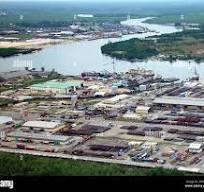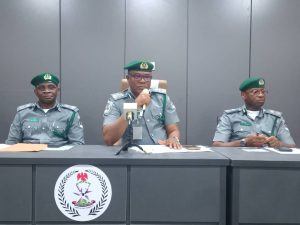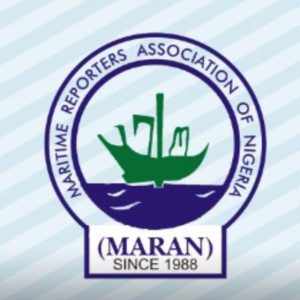By Enyeribe Anyanwu
Barely one month after the former governor of Anambra State and the Presidential Candidate of the Labour Party in 2023, Peter Obi, criticized the concentration of port development on the western axis of the country, and was rebuffed, a report by a research group has lent credence to his contention.
Obi had reacted to the federal government’s approval of $1 billion (₦1.4 trillion) for the upgrade of Apapa and Tin Can Island ports in Lagos as announced by the Minister of Marine and Blue Economy, Adegboyega Oyetola.
Expressing his disapproval via his X account, Obi had described the government inclination in port development as unfair and shortsighted, observing that Nigeria’s port infrastructure spending remains heavily concentrated in Lagos while other strategic ports such as Warri, Port Harcourt, Calabar, and Onne are not receiving equal attention.
The former Anambra State governor advised that Nigeria should have a balanced port development, citing examples of countries around the world that have decentralized port development and are reaping the immense economic benefits.
As expected, Obi’s candid criticism, honest observation and valuable suggestions were quickly dismissed as politically-motivated statements. He was carpeted as alleging government neglect of the eastern ports.
But while dismissing Obi’s cerebral submission, the government failed to explain why more than 70 per cent of port activities in the country are still concentrated in Lagos, despite the perennial congestions, traffic gridlocks and other problems induced by overstretched port environment. That over 70% of port activities in the country take place in Lagos ports is enough evidence that there has been no deliberate policy at geographical decentralization of port development in the country, especially after the Nigerian Civil War. And that is the reality.
After government has waved aside Peter Obi’s reaction to the whopping $1billion upgrade of Lagos ports, a recent report by a research body has lent credence to his criticism. The Sea Empowerment Research Centre (SEREC), which is an elite body of maritime industry stakeholders, particularly the freight forwarding group, last week came out with a research report that called on the federal government to exercise strong political will to develop the Eastern ports of Onne, Calabar, Port Harcourt and Warri.
The SEREC report noted that Onne, Calabar, Port Harcourt and Warri seaports are more expensive than Lagos ports, saying that the cost difference is “largely due to structural neglect and policy imbalance, not actual differences in freight or port tariffs”.
In a press statement detailing the report, the Head of Research, SEREC, Dr. Eugene Nweke, called on the federal government to consider major development of the seaports in terms of more infrastructure rehabilitation and provision to address the cost associated with the ports in the eastern zone.
The research group said there was the need to “dredge and modernize all Eastern ports to full draft capacity”. Among others, the report emphasized the need to:
-Rehabilitate the rail system and inland waterways for seamless connectivity.
-Implement cargo-sharing policies to balance port utilization.
-Provide incentives for shipping lines to call at Eastern ports.
-Depoliticize port management approach with a national economic focus, not regional bias.
Nweke remarked that the “expensive Eastern port” narrative is a myth born of long neglect, adding, that infrastructural attention and fair regulatory action can unlock competitiveness, reduce congestion in Lagos, and revive regional economic balance”.
On the cost side of the seaports, the report identified the key factors behind the cost perception as:
-Infrastructural decay marked by decades of abandoned dredging and collapsed quays.
-Obsolete cargo handling equipment.
-Shallow draft which restricts large vessels, leading to higher transshipment costs.
-Poor connectivity, weak road and rail links to markets.
-Insecurity and poor road conditions which increase haulage and logistics costs.
SEREC stated that shipping lines impose “insecurity” or “port differential” surcharges due to low traffic and poor facilities. This inflates the perceived freight cost.
Without mincing words, the group noted that federal investments and modernization efforts have been biased toward Lagos, stressing that routine dredging and infrastructure maintenance are denied or delayed in the East.
SEREC stressed that “regulatory silence sustains imbalance in port patronage”, just as “a subtle anti-eastern economic strategy appears to divert trade flow to Lagos for central control.”
It equally noted that hidden authorities resist decentralizing port operations, and that “maritime politics outweighs the economic logic of decongesting Lagos ports”.
The research report observed that NPA tariff structure remains uniform nationwide, while the freight cost differentials stem from: Longer vessel waiting times; Limited ship calls and weak competition; Poor hinterland connectivity rising distribution costs.
According to head of the research group, Nweke, “To put it succinctly, the Eastern ports are costlier by neglect, not by policy”.
All these are the cords that Obi struck in his reaction.
But truth be told, the Eastern ports are receiving more attention from government and the Nigerian Ports Authority (NPA) now unlike before. There are now deliberate efforts to modernize the ports for them to attract more business. It can be recalled that over the years, NPA had introduced a number of incentives for ships using the Eastern ports. These policies directed at foreign ship owners could not change anything since the problems responsible for low business at the ports persisted. These problems have been enumerated by SEREC, and have to be frontally and deliberately addressed to change the narrative.
As noted, the present management of NPA is doing its best to redress the situation with its ports modernization projects. But as it strives to modernize and attract investors to the ports, one is itching to hear that government has approved a certain amount of dollars to address some of the problems identified by SEREC.
Admittedly, the government and the present NPA management are paying more attention to Eastern ports now than before, but it does not change the long-standing fact that there has been deliberate neglect of the ports in the past. No amount of denial or intimidation can change that. Admitting the neglect and working conscientiously in fixing the infrastructure deficits, and providing the necessary linkages will ensure that shipping business will boom on that axis, thereby decongesting the Lagos ports and ensuring even development.
It’s time those who resist the optimum utilization of the Eastern ports stopped their selfish and unpatriotic act. The trite argument that ships will only go to ports chosen by the shipper should be weighed against the infrastructure and operational capabilities of competing ports.
As SEREC has noted, government should exercise political will to modernize the Eastern ports. Continued denial of glaring reality does not augur well for the economic prosperity of the nation. When the identified problems with the ports are tackled, and they no longer exist, more shippers will route their cargoes to the ports and the country will be better for it.
Photo: Port Harcourt Port




More Stories
Of waiver, CVFF disbursement, and NNPC’s shipping joint venture
Why fuel importers must go out of business
Mele Kyari as an Untouchable in NNPCL?